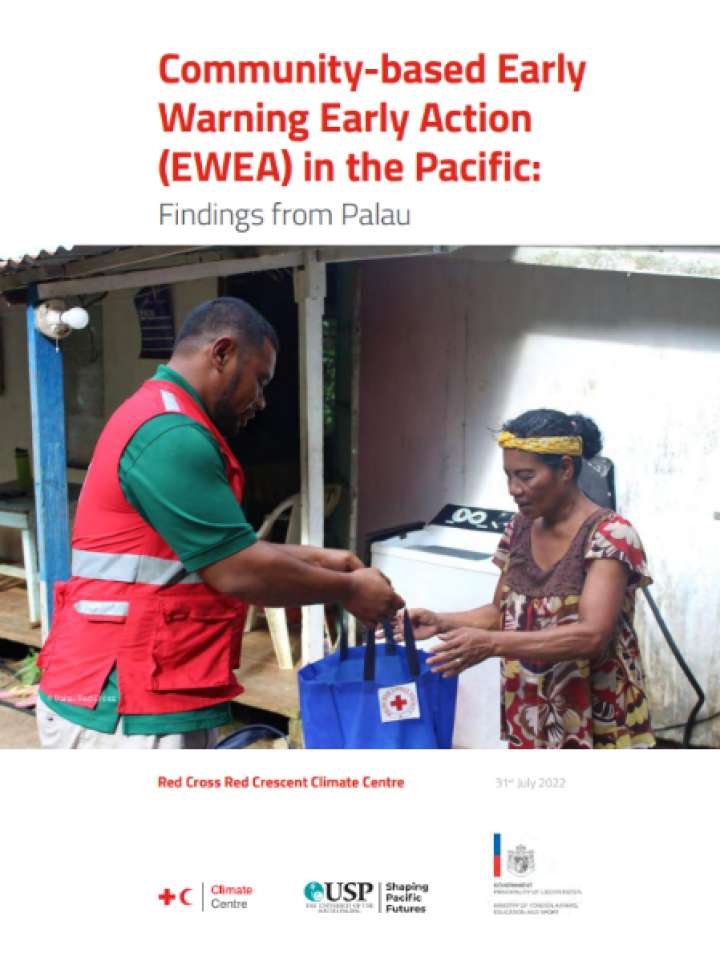Community-based Early Warning Early Action (EWEA) in the Pacific: Findings from Palau
This research study on Community-based Early Warning Early Action (EWEA) in the Pacific has explored opportunities for strengthening EWEA in the Pacific, focusing on understanding local practices at the community level, while recognizing that these are often shaped by national and regional policy frameworks. It seeks to capture evidence on impacts as well as response mechanisms and identify ways to strengthen and build on these models. Research was conducted in Palau which was chosen as a case study to document existing strengths of EWEA systems on the island nation. This report focuses on typhoons and EWEA in Palau.
The study finds significant opportunities to build on the progress that is being made in policies and practices to enhance community and youth outcomes in Palau, particularly given the current system for responding to typhoons. Youth, for example, engage in preparatory activities when a typhoon is forecast. However, the study finds that challenges exist in terms of mobilizing those young people who are unwilling to engage. Wrong information and warning given during previous typhoon experiences has also undermined the trust of the community in such systems and strengthening of the messaging and accuracy of information provided is needed at the institutional level.
Explore further
